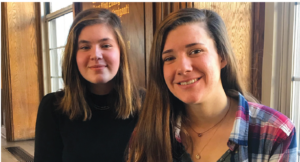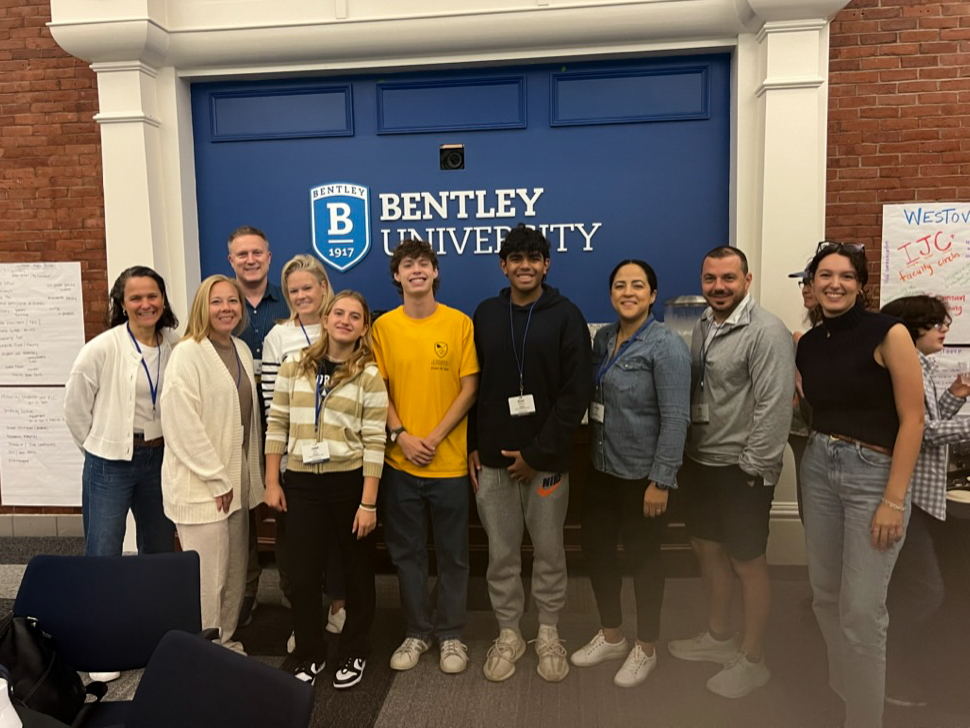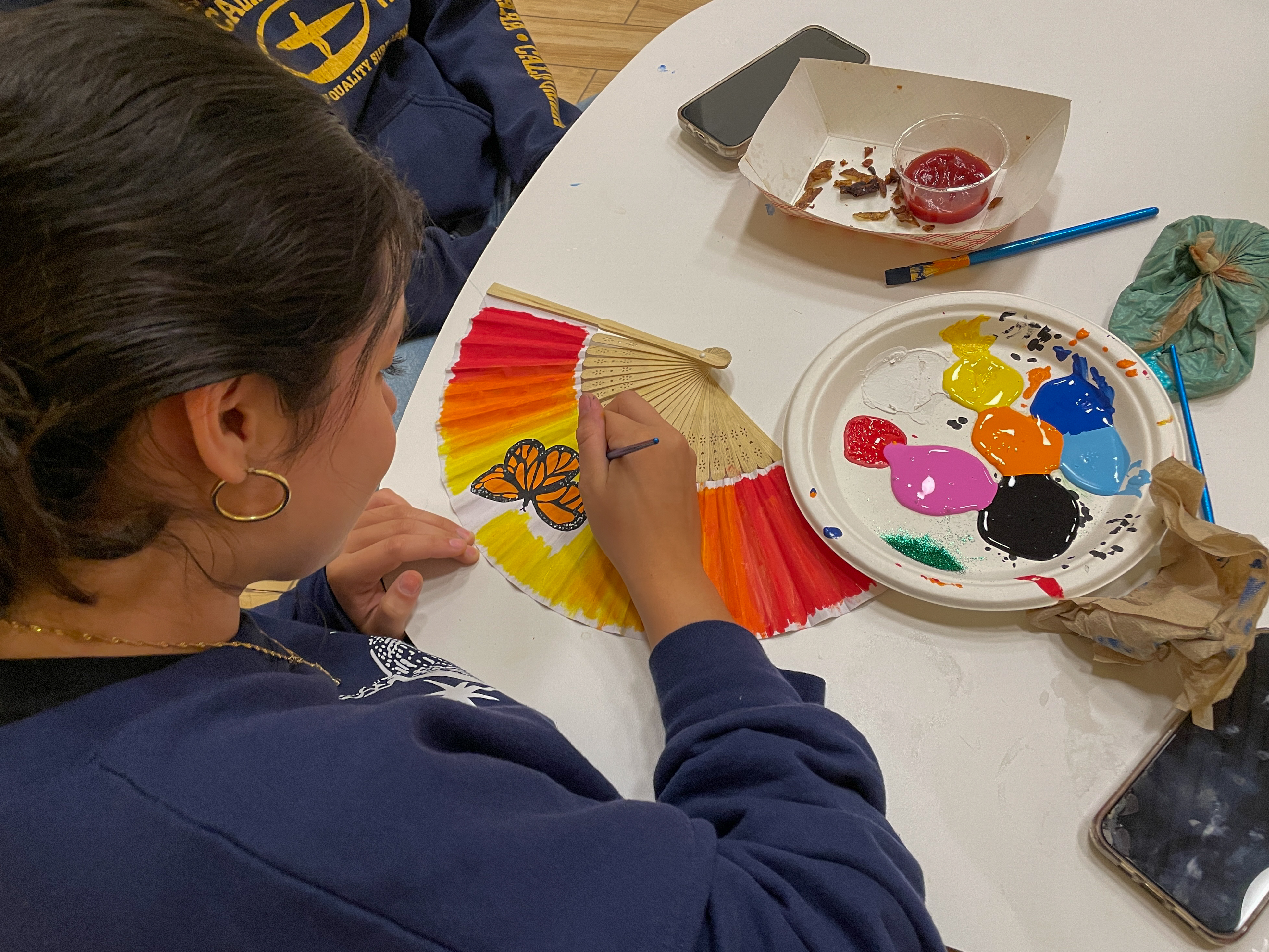On Tuesday, January 8, Serena Sandweiss ’20 and CiCi Curran ’20 introduced the importance of Title IX to the School. Their school meeting presentation — inspired by their attendance of a conference this past fall term in Washington, D.C. — established comment-writing sessions for students to advocate against the recent actions of Secretary of Education Ms. Betsy DeVos.
The presentation comes in response to Ms. DeVos’s November overhaul of sexual assault rules on college campuses. The change reduced the liability of colleges and universities for investigating sexual misconduct claims and lengthened the investigation time for sexual assault charges. Curran said, “Title IX in its most basic form is to prevent discrimination on the basis of gender for college students in institutions which are governmentally funded. It matters to students as it is what is protecting students from any sort of issues that colleges may try to hide to protect their reputation.” She continued, “The most recent proposed changes make it much more difficult for claims from survivors to have legal action.”
“The goal of the presentation was to spread awareness about the changes to Title IX and how it affects all of us,” said Sandweiss. She continued, “We also wanted to inform people on what they can do to help.” Curran added, “While ultimately we want to have students be interested, motivated, and as concerned as Serena and I are about the changes — motivated enough to write comments — we also want people to just know about their basic rights.” For upperclassmen, the changes are especially notable. “Most of us are going off to college and Title IX will soon play a large role in our life; we want people to know it’s there for them,” Curran commented.
The conference took place over the first few days of Thanksgiving break in Washington, D.C. Six Choate students — Curran, Sandweiss, Serena Levin ’20, Evan Karas ’19, Lizzie Quinn ’20, and Anesi Ojior ’21 — traveled with Associate Head of School Ms. Kathleen Wallace and Wellness Coordinator Dr. Holly Hinderlie. Said Curran, “The conference was primarily about sexual assault and consent. It covered a wide variety of topics with hundreds of seminars. I personally attended three sessions under the topics of the language of victim blaming, Title IX, and masculinity and how to healthily control it in your community. We also heard and talked a lot about a few survivor’s stories we heard.”
The students aim to bring what they learned at the conference back to Choate, starting with Title IX advocacy. Curran suggested, “I want to encourage students to come to the comment writing session; however, there is not much else in regards to governmental action that we can do. However, I think that we could be better as a community about talking about Title IX and better ourselves about being aware of the changes. I’m thinking about talking to Dr. Hinderlie about changes we can make to the wellness curriculum to encourage this knowledge.”
Sandweiss added, “Right now, the most important thing that people can do is write a comment. These can be about anything relating to the changes to Title IX: a personal narrative about sexual assault or how the changes will affect you. People can also do research about the changes in order to better know their rights.” The first comment period was on Tuesday, January 15, and the second is on Tuesday, January 22.
The Choate community has been generally supportive of the students’ work. “It is an amazing feeling to have so many people who want to make a difference, and honestly, just hearing from people who didn’t even know about Title IX before be interested in it, in general, is a win in my eyes,” said Curran.
“I think what I took away most was just mostly about survivors. I had read survivor stories before, I know of famous survivors, but hearing them live was something else,” noted Curran. “In one case I heard from a survivor who was a straight-A student, a Catholic girl, was in sweats and no makeup when she was raped, went straight to the police after being assaulted, and still had to wait years to have any closure.”
Curran concluded, “It really struck a chord realizing that no survivor is the same; I heard stories from several different survivors and no one story was similar in really any way. The system is made against survivors, and that is so incredibly wrong.”





